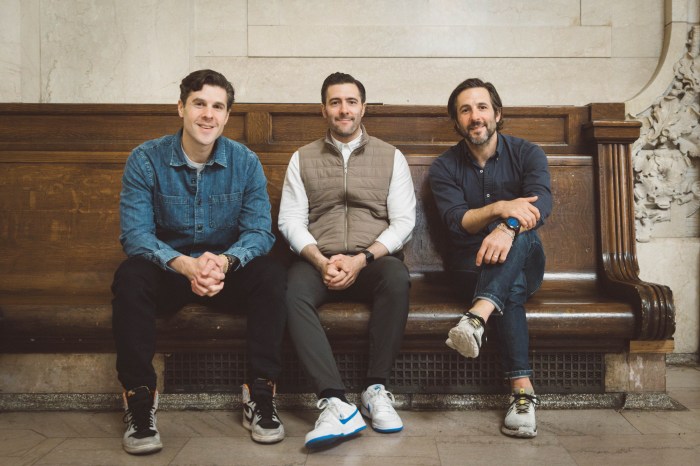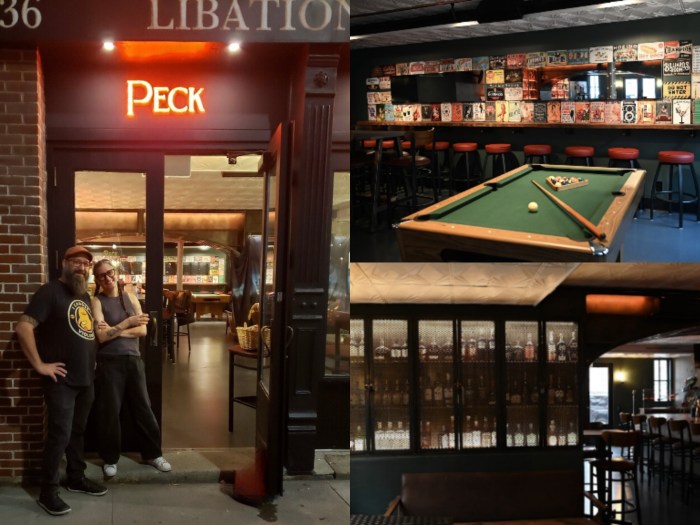
Small specks of fruit dot the thin, nearly translucent sheets of fruit leather produced at the Windsor Terrace factory, where a new, all-natural snack is made the old fashioned way.
Ray Shalhoub plans to use the product — called Fruit IQ — to help his family’s company reach a more health conscious crowd. His business, Joseph Shalhoub & Son, has been making fruit rolls for decades under a brand called Joray. The original product is made with ingredients like flour and corn syrup. To complement Joray, Shalhoub is making Fruit IQ — a certified non-GMO, gluten-free, vegan and kosher treat — with fruit, fruit fiber, citric acid and vitamin C.
“The market was changing — the explosion of organic. . . . It seemed like a natural extension,” said Shalhoub, 64, of Bay Ridge. “It tastes good. It reminds people of their childhood.”
Although an 8-pack can be purchased online for $16.80, Fruit IQ is not in stores yet. Shalhoub said he is introducing the treat at trade shows, testing it out on neighborhood residents and working on distributing it to specialty stores, with the goal of having it on shelves in early fall.

Shalhoub and his family are not new to the sweets scene. Shalhoub’s great grandfather, who came to New York from what is now Lebanon, opened a Middle Eastern pastry shop on a street in lower Manhattan that was eventually knocked down to build the Brooklyn Battery Tunnel. He then reopened it on Atlantic Avenue in Brooklyn, rolling baklava sheets by hand. The business was passed down through the family, from Shalhoub’s grandfather to his father.
But in the mid 1950s, Shalhoub’s father decided there was opportunity in a different business: making fruit rolls reminiscent of a Middle Eastern candy called amardeen, which is made from apricot paste pressed into sheets.
Shalhoub’s father eventually closed the family pastry shop and rented a basement down the block to manufacture the new rolls, which he named Joray after his sons, Joseph and Ray. His father used a hand press to flatten individual pieces of the apricot candy. And Shalhoub and his mother would hang the sheets on clothes racks to dry, praying it was not too humid.
In the 1970s, Shalhoub and his brother formally joined the family business, which expanded to the storefront next door and then to a building down the street.
The idea for a more natural version of Joray came to Shalhoub about four years ago. He spent the past two years focusing on Fruit IQ and finessing a formula that is tasty, healthy and shelf stable.

“I’d make up formulations [and] bring it in,” he said. “I would be outside in the morning rush hour and the evening rush hour, asking people to try it.”
The fruit rolls — which come in apricot, sour plum, tart cherry and cranberry flavors — take about three days to complete. First, workers mix fruit fiber with dried fruit into a paste. The paste is then formed into sheets and dried again.
Shalhoub said he officially debuted Fruit IQ at the Winter Fancy Food Show in San Francisco and has hired a firm to help with packaging and a website. Now, he is focused on securing the right kind of distributor.
“We’re a small company, and our product is handmade so our production is limited,” Shalhoub said. “There are some very large companies that want to take it and put it into the giant chains — I can’t produce enough. There’s no sense in taking on a client or a distributor where you can’t supply them.”


































